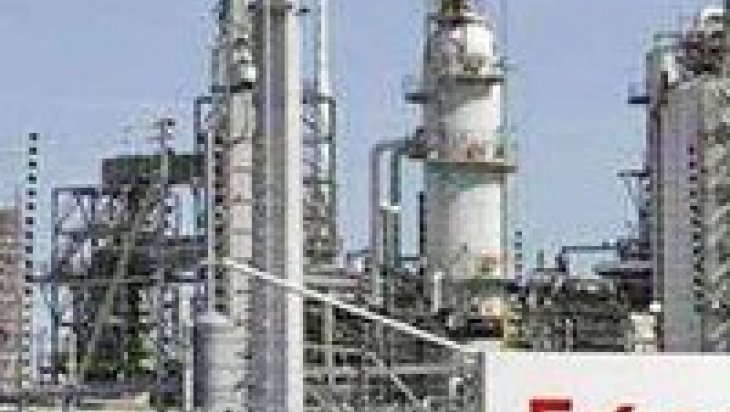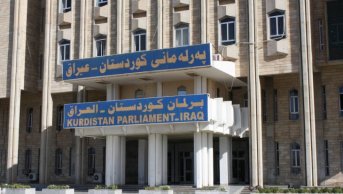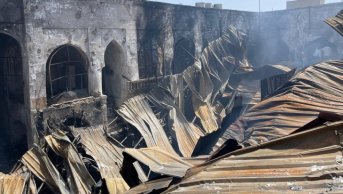Turkey-North Iraq-ExxonMobil: Advantages and Disadvantages

The statement of Prime Minister Recep Tayyip Erdoğan before his visit to the U.S. shows that a new stage has been reached in Turkey's approach towards the energy issue in North Iraq. It is known that Turkey could not find what it has been looking for in Iraqi oil sector for a long time. Other than some major roles that Turkey's state-run Turkish Petroleum Corporation (TPAO) has assumed in central part of the country, the most important role Turkey has assumed among the oil dynamics in Iraq has been the operation of oil companies such as Petoil and Genel Energy in KRG. Moreover, it was known that Turkey, which stayed away from developments on oil and natural gas within KRG for many years, has become interested for the last couple of years. However, the content of this interest has only been partially reflected in the press for various reasons. In fact, although some media organs asserted that Turkey signed oil agreement(s) with KRG, the situation was not clarified somehow. Nevertheless, the fact that Prime Minister Erdoğan declared Turkey would cooperate with Exxon Mobil in North Iraq has been the clearest indicator so far.
As one of the world's largest oil companies, ExxonMobil had major shares in some of the most important oil fields of the country after the invasion of Iraq. The fact that ExxonMobil, which appeared in the areas already known in central and southern parts of Iraq and described as giant fields like big oil companies for a long time, signed an agreement with KRG on 18 October 2011 including 6 fields (Bashika, Al Qush, Arbat East, Pirmam, Betwata and Qara Hanjeer) made an impact that changed the ongoing energy balance in Iraq until then. The factor which prompted Exxon Mobil to take this decision is suggested to be the possibility that it could make much bigger profit in north compared to low rate of return of its investments in south. For whatever the reason is, the presence of this giant company in KRG has had quite important consequences on the Iraqi constitution, the attitude of other companies, the future of KRG and Turkey's role. Those consequences can be briefly listed as follows:
1. Three (Qara Hanjeer, Bashika and Al Qush) out of six fields that are subject to the agreements ExxonMobil signed with KRG are included in the disputed territories in Iraq. Disputed territories, which is one of the main problems of Iraq is the leading problem that could not be solved between the central government and KRG. Disputed territories covering a wide area from northwest to northeast of the country has a complex ethnic and sectarian structure. Particularly Mosul and Kirkuk have an important place in this wide area, where Kurds, Sunni and Shiite Arabs, Turkmens, Yezidis, Christians and other groups live. According to the Iraqi constitution, the Kurdistan region of the country consists of the areas controlled on March 19, 2003 by the KRG. Accordingly, despite the fact that Qara Hanjeer is under the control of Kirkuk while Bashika and Al Kush are under the control of Mosul which are the fields Exxon signed agreements on, and that they should be under the administration of Iraqi central government for that reason; KRG takes advantage of the actual state and signs agreements on fields in the region. (This problem does not only apply to the fields or settlements mentioned above, but also to some other areas). Thus, in its conflict with central government on disputed territories, KRG gains a considerable advantage. To sum up, Exxon's having those territories should not be considered as a coincidence; it should rather be seen as a well-planned step to redraw borders of Mosul and Kirkuk by using the global power of this giant company.
2. After Exxon got involved, many other large companies (Chevron, Total, Gazprom Neft etc.) signed agreements with KRG at the risk of jeopardizing their other investments in the rest of Iraq. Therefore, the oil sector in KRG has boomed to a great extent for the last 1.5 years.
3. After Exxon's showing up, the idea that KRG would become one of the most important oil-producing regions of the world gained a great importance. This situation has turned into a dynamic that would make it faster for KRG to gain its independence.
4. Despite all, future of the oil sector in KRG has become more dependent on Turkey. Because considering the current circumstances of the Middle East, the only place through which oil drilled in the region could be transported to the rest of the world is Turkey. It does not seem possible for Western companies that make investments in KRG and especially for ExxonMobil to transport the oil they drill via instable Syria, via Iraq that does not recognize oil agreements, or via Iran which is subject to sanctions by the U.S. Hence, both Exxon and other companies from western countries see Turkey as the only way out. Therefore, Exxon, which is to be the energy leader of KRG, can capitalize this investment through its relations with Turkey. Within this framework, it is inevitable for Exxon to be willing to promote its relations with Turkey.
Probably the second most strategic step KRG has taken after bringing Exxon to the region is to make Turkey an important part of the equation. For Turkey, which aims to meet the energy need increasing with each passing day and to promote its strategic relations with Iraqi Kurds, this step is seen as a win-win relationship. However, Turkey's being included in the energy equation in North Iraq should not be considered only in economic terms. It is not clear yet in which fields the cooperation with Exxon, stated by Prime Minister Erdoğan, has been made. Does the cooperation cover the disputed territories, or does it cover only the areas under the control of KRG? Even though KRG's signing oil agreements on its own is still an important issue of conflict, it can be rather seen as an issue that concerns internal affairs of Iraq. However, if the cooperation takes place in the areas that would have an impact on the change of borders of Mosul and Kirkuk, then it is likely to trigger an arrangement to leave much more profound impacts on the future of region.






